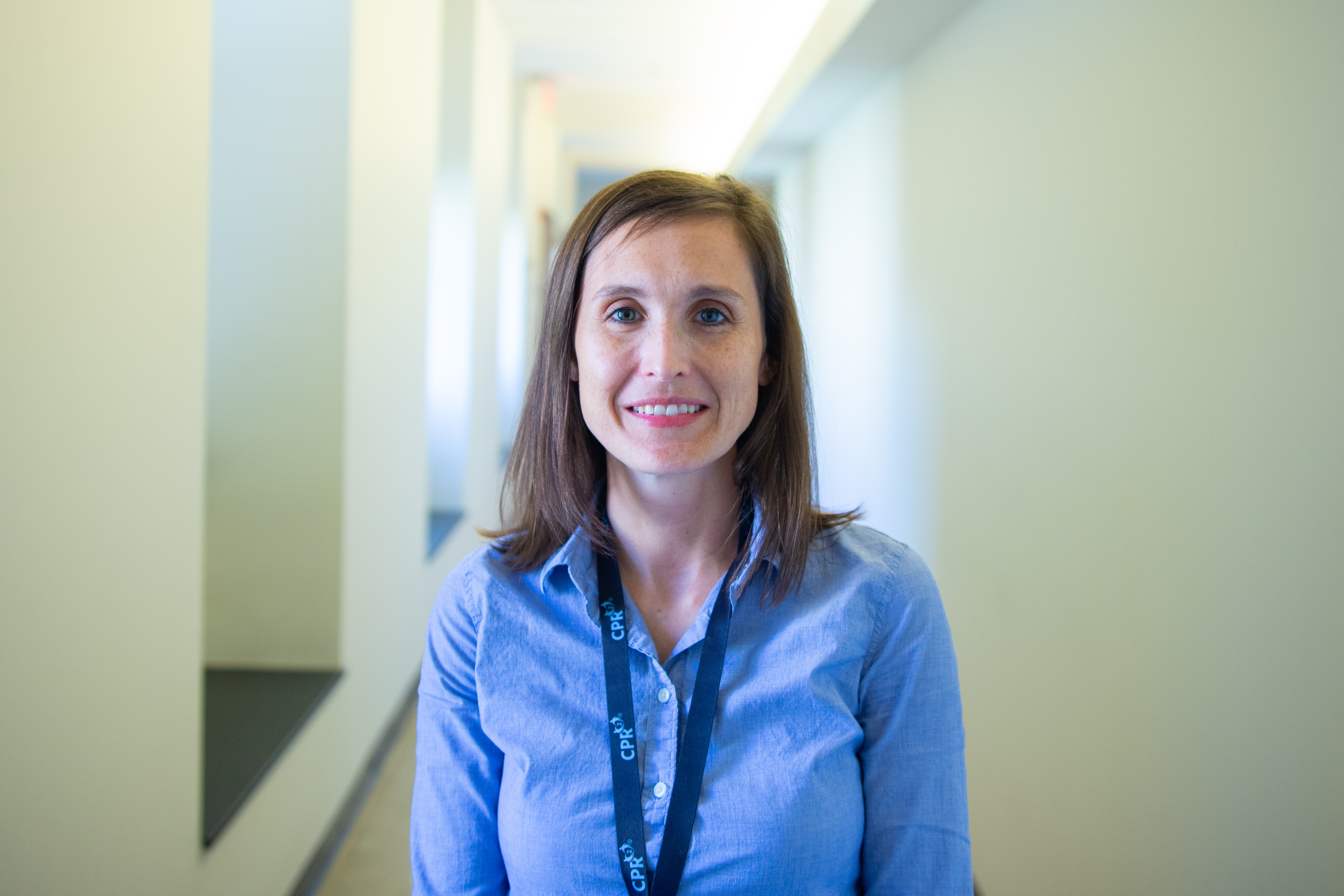Assistant Professor
321 Columbia St. Bondurant Hall
Room 3116
Campus Box 7190
Chapel Hill, NC 27599
Phone: 919-962-5965
Fax: 919-966-6100
Courses taught
SPHS 741: Neuroanatomy In development: Cognitive-Communication of Adults
Education
- Advanced Fellowship in Women’s Health Research, Veterans Health Administration, 09/2014 – 09/2017
- Speech-Language Pathology (Cognitive-Communication) Postgraduate Research Participation Program at the U.S. Army Public Health Command Fellowship, National Audiology and Speech Center, Walter Reed National Military Medical Center, 09/2013 – 09/2014
- Speech-Language Pathology PhD, University of Wisconsin-Madison, 09/2008 – 08/2013
- Communication Sciences and Disorders MS., University of Wisconsin-Madison, 09/2006 – 05/2008
- Speech-Language Pathology BS, University of Wisconsin-Madison, 09/2002 – 05/2006
Personal Statement
My long-term research goal is to develop a more complete model of the relationships between cognition and communication across the lifespan. Better understanding the relationships between communication and cognition is critical to the development of more effective treatments for high-level communication problems experienced by many men and women with neurologic communication disorders. Toward this goal I am interested in better understanding how cognitive deficits translate into communication disorders after traumatic brain injury (TBI) and how communication outcomes may change across the lifespan.
Professional Societies
- American Speech-Language-Hearing Association, Member
- Academy of Neurologic Communication Disorders and Sciences, Member
Publications
Journal Articles
Byom, L. & Turkstra, L. (2017). Cognitive Task Demands and Discourse Performance after Traumatic Brain Injury. International Journal of Language and Communication Disorders, 52(4), 501-513).
Krause, M., Byom, L., Meulenbroek, P., Richards, S., O’Brien, K. (2015). Supporting the Literacy Skills of Adolescents and Young Adults with TBI. Seminars in Speech and Language, 36, 60-73.
Byom, L. J. & Mutlu. B. (2013). Theory of Mind: Current Research and New Directions. Frontiers in Human Neuroscience, 7, 1-12. PMCID: 3737477. Byom, L. J. & Turkstra, L. S. (2012). Effects of Social Cognitive Demand on Theory of Mind In Conversations of Adults with Traumatic Brain Injury. International Journal of Language and Communication Disorders, 45(3), 310-321. PMCID: 3712631.
Duff, M. C., Mutlu, B., Byom, L., & Turkstra, L. (2012). Beyond utterances: Distributed cognition as a framework for studying discourse in adults with acquired brain injury. Seminars in Speech and Language, 33, 44-54.
Book Chapters
Allison, K. M., Byom, L. J., & Turkstra, L. S. (2016). Traumatic Brain Injury in Children and Adolescents, Third Edition. In Johnson & Jacobson (Eds.), Medical Speech-Language Pathology: A Practitioners’s Guide. Thieme: New York, New York.
Duff, M.C., Mutlu, B., Byom, L., & Turkstra, L. (2015). Novel theoretical and methodological approaches to disruptions in social communication following acquired brain injury. In Routledge Handbook of Communication Disorders. Routledge: New York, New York.
Byom, L. J., Allison, K. M., & Turkstra, L. S. (2013). Cognitive communication disorders in children with TBI. In McDonald, Togher, and Code (Eds.), Communication Disorders Following Traumatic Brain Injury. Psychology Press: Hove, United Kingdom.
McDonald, S., Honan C., Kelly, M., Byom, L., Rushby, J. (2013). Disorders of social cognition and social behaviour following severe TBI. In McDonald, Togher, and Code (Eds.), Communication Disorders Following Traumatic Brain Injury. Psychology Press: Hove, United Kingdom.
Togher, L., McDonald, S., Coelho, C. A., Byom, L. (2013). Cognitive communication disability following TBI: Examining discourse, pragmatics, behaviour and executive functioning. In McDonald, Togher, and Code (Eds.), Communication Disorders Following Traumatic Brain Injury. Psychology Press: Hove, United Kingdom.
